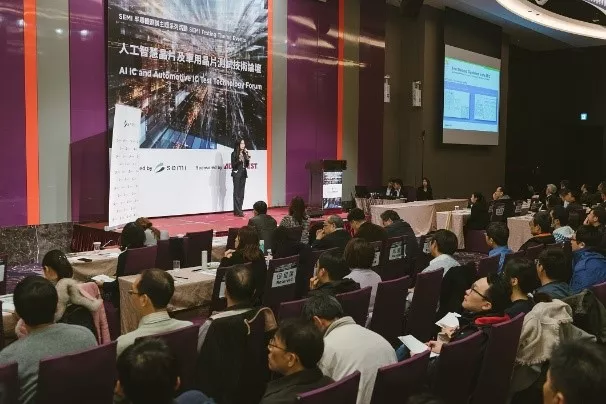
Since 2010, 474 companies worldwide have poured $51 billion into developing artificial intelligence (AI) devices, with the bulk of these investments targeting autonomous driving and in-vehicle experiences, according to a McKinsey & Company report. With the extraordinary growth potential of AI and automotive electronics, it’s no surprise that IHS Market predicts the Advance Driver Assistance Systems (ADAS) market will reach $67.43 billion by 2025. By 2040, the market research firm expects 33 million autonomous vehicles enabled by AI to be on the road worldwide.
Lured by the immense business opportunity, more semiconductor manufacturers are jumping into the automotive market knowing that autonomous driving ICs will face far more stringent reliability requirements than traditional devices. Testing, then, will be crucial for level 5 autonomous driving to materialize since a fully autonomous system will need to rival the behind-the-wheel performance of a human driver even in extreme road conditions like snow and ice
With testing vital to the development of chips for autonomous driving, SEMI Taiwan recently convened experts from IC design and testing-related fields to facilitate cross-discipline collaboration and help inspire innovative solutions to current testing challenges. The early February AI IC and Automotive IC Test Seminar is part of a series of SEMI Taiwan events focused on hot topics including like AI, IoT, smart automotive, smart data and smart MedTech. Following are a key takeaways from the seminar.
Paradigm Shift Needed in Automotive Electronics Testing Strategies
Designers of automotive electronics need to transform their test strategies to match the technical rigors of autonomous driving. The traditional process of build, test, and then fix-for-compliance must change in the era of self-driving  vehicles. Adding AI to already electronically complex automotive systems will dramatically increase the number of ICs and sensors in vehicles.
vehicles. Adding AI to already electronically complex automotive systems will dramatically increase the number of ICs and sensors in vehicles.
Traditional component testing for points of failure is far less rigorous than vetting devices under the countless driving scenarios where they could fail. Testing, therefore, must be holistic. Starting in the development phase of their own electronics systems, automotive electronics designers must work closely with component and other technology suppliers to ensure that designs are tightly integrated and exhaustively tested for interoperability and points of failure under any conditions a human driver would face.
Wafer-level Test is A Trend
The cost and time for IC testing have steadily increased to meet the relentless scaling requirements of highly integrated advanced technologies, placing immense pressure on current wafer-level packaging and testing methodologies to maintain cost efficiencies, chip yields and time-to-market speed. The challenges will intensify with the multiple-component parallel testing required for autonomous vehicles. Demands on automotive electronics manufacturers to maintain DDPM quality levels key to smart functionalities, powertrain operation, safety and reliability will also complicate current IC testing methodologies.

Nearly 300 professionals from IC design and related fields gathered at the SEMI Taiwan forum to tackle the challenges of autonomous vehicle testing
Beyond Technology
To fulfill the promise of autonomous automobiles and other AI applications, industry, academia, and government in Taiwan must work together to solve underlying technical challenges, create profitable business models and develop a strong programming and system integration workforce. Taiwan's strong semiconductor manufacturing industry and advanced IC testing capabilities put it in the pole position to help drive the development of advanced automotive electronics essential for autonomous vehicles.
Emmy Yi is a senior marketing specialist at SEMI Taiwan.